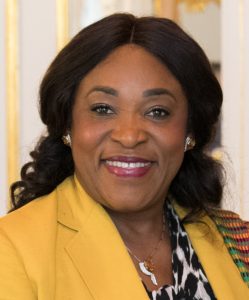DRC demands action against Rwanda from the United Nations Security Council
3 min readThe United Nations Security Council convened for the second time in three days on Tuesday to address the escalating crisis in the eastern Democratic Republic of Congo (DRC). The situation in the regional capital, Goma, is increasingly dire, with reports of violence, widespread displacement, and chaos in the streets. The M23 rebels, who are allegedly backed by Rwanda, claimed to have captured Goma, although it remains unclear how much of the city they actually control.
At the Security Council meeting, DRC Minister of Foreign Affairs Therese Kayikwamba Wagner made an impassioned plea for action, accusing Rwanda of acting with impunity in the region. “Millions have been displaced. Thousands are trapped in the besieged city of Goma with restricted access to food, water, electricity, security. Countless lives have been lost,” Wagner said, outlining the dire humanitarian crisis unfolding in the eastern DRC. She emphasized that Rwanda’s involvement could no longer be tolerated and demanded immediate measures from the Council.
Wagner’s statement included a call for five specific actions. The first demand was the unconditional withdrawal of Rwandan troops from Congolese territory, which she described as essential for achieving a peaceful and sustainable resolution. She argued that without this critical step, there could be no genuine peace process. Wagner also called for sanctions against the Rwandan Defense Force and the suspension of Rwanda as a contributor to UN peacekeeping missions. Additionally, she urged the Council to implement an embargo on Rwanda’s illicit exploitation and exportation of mineral resources from the DRC, which she believes finances the ongoing aggression.
Several international actors, including the United States, the United Kingdom, and France, have condemned Rwanda’s involvement in the conflict, particularly its backing of the M23 rebels. These nations have expressed concern over the worsening situation in Goma and the broader North Kivu region, which has long been plagued by armed groups vying for control over the area’s valuable mineral resources.
As the M23 rebels made their way into Goma on Sunday, thousands of residents fled the city in fear for their lives. UN officials on the ground have reported widespread violence, looting, and a mounting number of bodies in the streets. The city’s hospitals are overwhelmed, struggling to cope with the influx of casualties from the fighting. Goma, with its strategic importance as a regional trade and humanitarian hub, has become the epicenter of the conflict, which has displaced millions in the eastern DRC.
In response to the intensifying violence, the United States urged the UN Security Council to consider decisive measures to halt the M23 offensive and protect civilians. The U.S. has been vocal in its condemnation of Rwanda’s role in the unrest, and the Biden administration has called for concrete actions to curb the ongoing instability. The Council’s ongoing deliberations are expected to explore possible sanctions, peacekeeping options, and diplomatic interventions aimed at de-escalating the situation.
In a related development, DRC President Félix Tshisekedi announced that he would not be attending an emergency summit organized by the Community of East African States (EAC) in Nairobi, Kenya, on Wednesday. Tshisekedi’s absence from the summit highlights the gravity of the situation in the DRC, as the country’s leadership grapples with both internal and external pressures related to the conflict. The summit had been scheduled to discuss the worsening crisis in the DRC and potential solutions, but Tshisekedi’s decision to stay home underscores his dissatisfaction with the current diplomatic efforts and the need for stronger action.
The M23 rebels, who are one of approximately 100 armed groups operating in North Kivu, have been gaining ground in the mineral-rich region, which is vital to global supply chains for key technologies. The region is home to valuable minerals such as cobalt and tin, making it a critical area for both national and international stakeholders. The M23’s continued offensive in the region not only threatens the stability of the DRC but also raises concerns about the security of global mineral supplies.
As the conflict in Goma continues to unfold, the UN Security Council faces mounting pressure to take decisive action to protect civilians, address Rwanda’s involvement, and work toward a long-term solution to the crisis. The situation in the DRC remains fluid, and the next steps taken by the international community will likely have significant implications for both the region and global geopolitical dynamics.
Source: African News Agency






